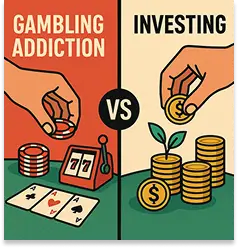Investors have long turned to gold for stability in turbulent times. But since Bitcoin’s creation in 2009, many hail it as “digital gold.” How do these two assets truly compare as safe havens? In this article, we trace gold’s storied history, unpack Bitcoin’s origins, and weigh their relative merits across scarcity, security, portability, volatility, and future outlook.
The Historical Role of Gold
Gold’s use as money and store of value stretches back millennia. Ancient civilizations minted gold coins; empires built fortunes on gold mines. Its physical rarity, resistance to corrosion, and universal desirability cemented gold’s status.
Gold served as:
- A medium of exchange under the gold standard.
- A hedge against inflation when governments debased paper money.
- A crisis asset during wars, recessions, and currency crises.
By 1971, most nations abandoned gold-backed currencies, yet central banks continue holding over 34,000 tonnes today—a testament to trust in gold’s stability.
Birth of Bitcoin: Digital Scarcity
In October 2008, the pseudonymous Satoshi Nakamoto published the Bitcoin whitepaper. By January 2009, the first 50 BTC mined on the Genesis Block, laying the foundation for a decentralized, censorship-resistant payment network.
Key features of Bitcoin’s design:
- Fixed Supply: Maximum of 21 million BTC, preventing inflationary issuance.
- Proof-of-Work Security: Miners expend energy solving cryptographic puzzles, securing transactions.
- Decentralization: No single authority controls issuance or ledger updates.
Bitcoin’s scarcity mimics gold’s limited supply, while its digital nature enables global, near-instant transfers.
Comparing Supply Dynamics
- Gold: Annual mine production ~2% of existing above-ground stock; supply grows slowly.
- Bitcoin: Predictable issuance, halving events every ~4 years cut block rewards in half, tapering new supply to zero by ~2140.
Key Criteria for Safe-Haven Assets
When evaluating gold vs Bitcoin, consider:
- Scarcity & Supply Control
- Security & Trust Model
- Portability & Divisibility
- Volatility & Price Stability
- Adoption & Liquidity
Pros and Cons List
Pros of Gold
- Physical tangibility and centuries of trust.
- Low long-term volatility relative to equities.
- Universally accepted and recognized.
Pros of Bitcoin
- Censorship-resistant, borderless transactions.
- Divisible to eight decimal places for micro-transactions.
- Transparent, public ledger ensures auditability.
Cons of Gold
- Bulky, costly to store and insure.
- Hard to transact in small fractions.
- Limited digital-native use cases.
Cons of Bitcoin
- High short-term volatility can test investor nerves.
- Security relies on private key management—risk of loss/theft.
- Regulatory uncertainty in some jurisdictions.
Volatility and Performance Comparison
Gold’s annualized volatility hovers around 10–15%, while Bitcoin often swings 50–80% annually. Over the last decade:
- Gold returned roughly 6–8% per year on average.
- Bitcoin delivered astronomical returns early but showed deep drawdowns (e.g., 2018, 2022).
Despite volatility, Bitcoin’s non-correlated price action makes it an attractive diversifier alongside gold and equities.
Future Outlook for Gold and Bitcoin
Both assets evolve with technology and macro trends:
- Gold: Innovations in digital gold platforms, tokenized gold ETFs increase accessibility.
- Bitcoin: Layer-2 scaling (Lightning Network), growing institutional adoption, and clearer regulations bolster mainstream trust.
Coexistence or Competition?
Rather than rivals, gold and Bitcoin may complement portfolios:
- Gold offers centuries-proven stability.
- Bitcoin brings digital era innovation, high growth potential.
A blended allocation—e.g., 5–10% each—can harness both assets’ unique strengths.








